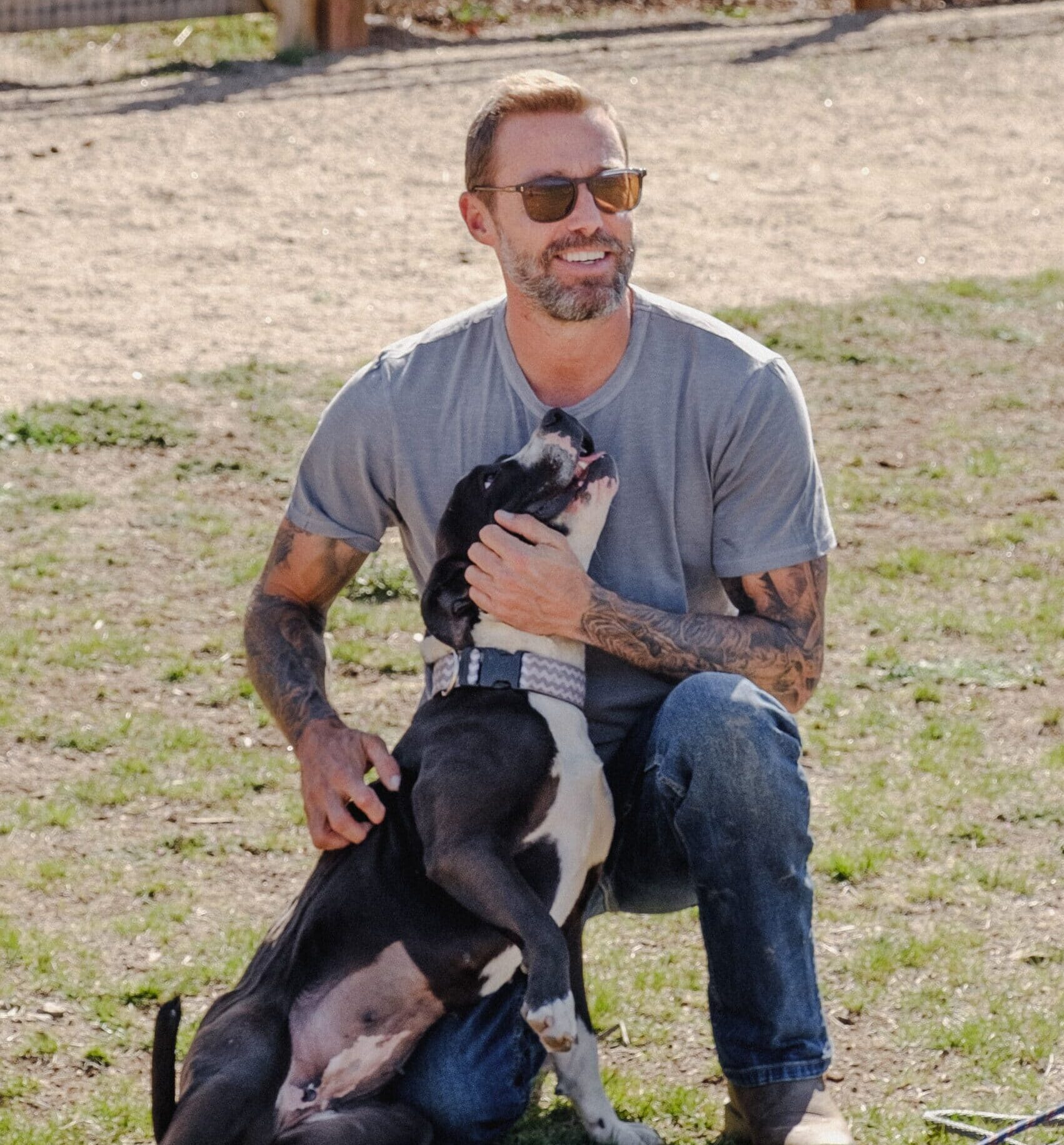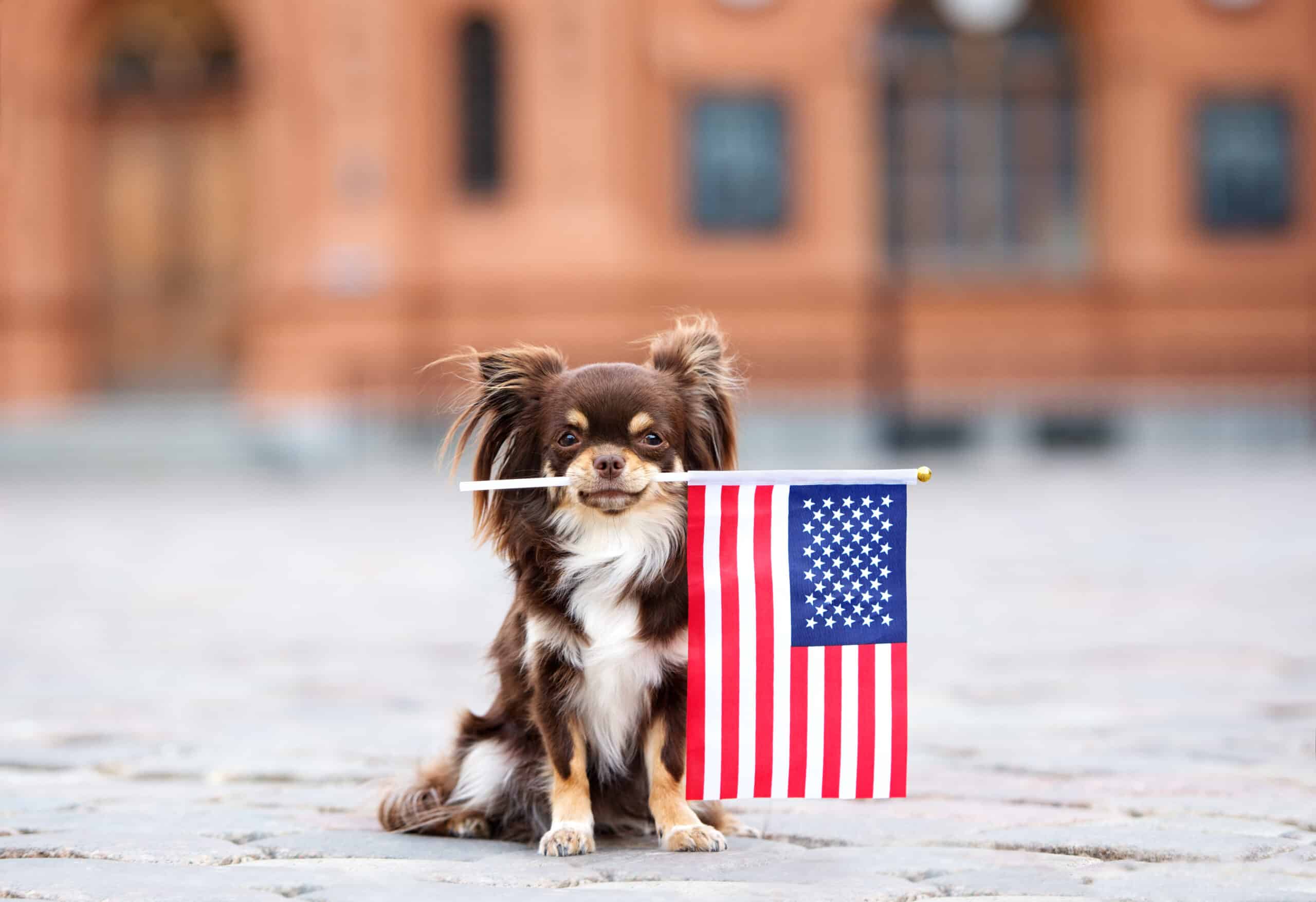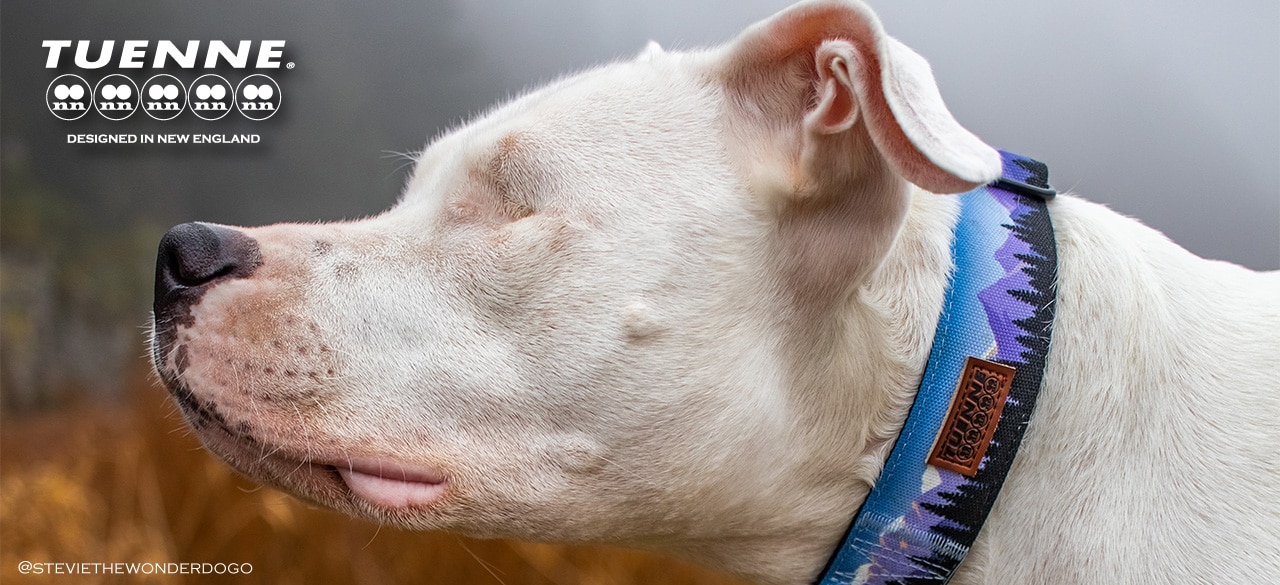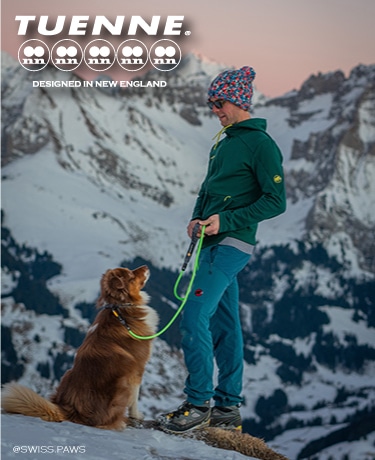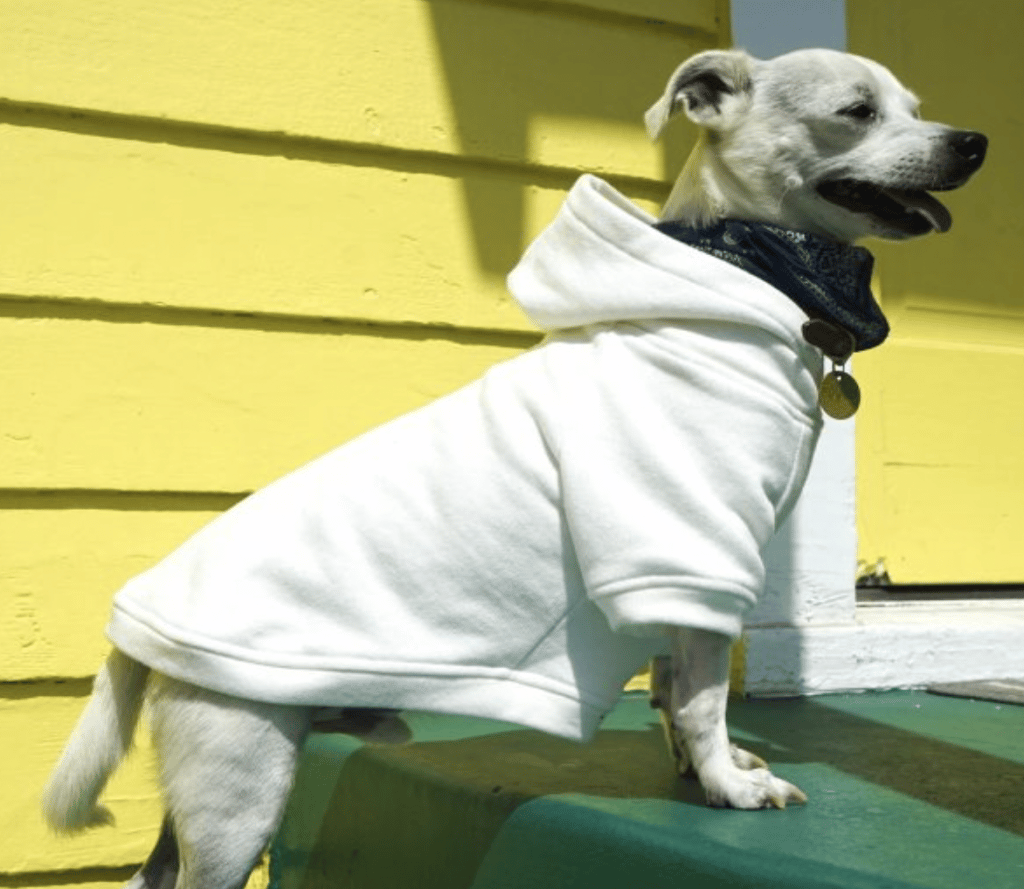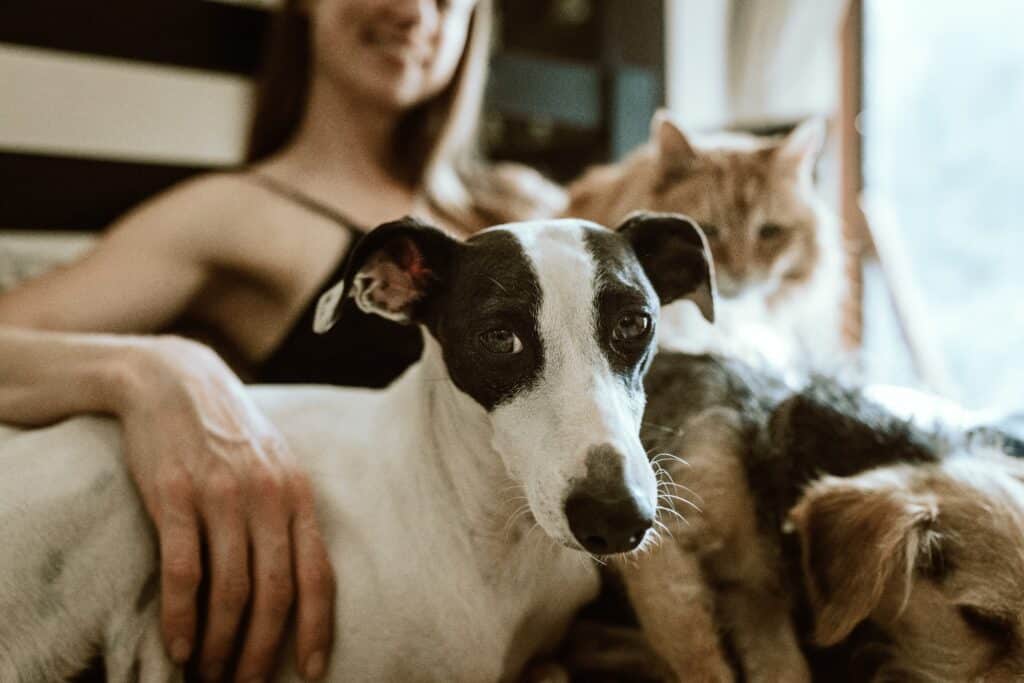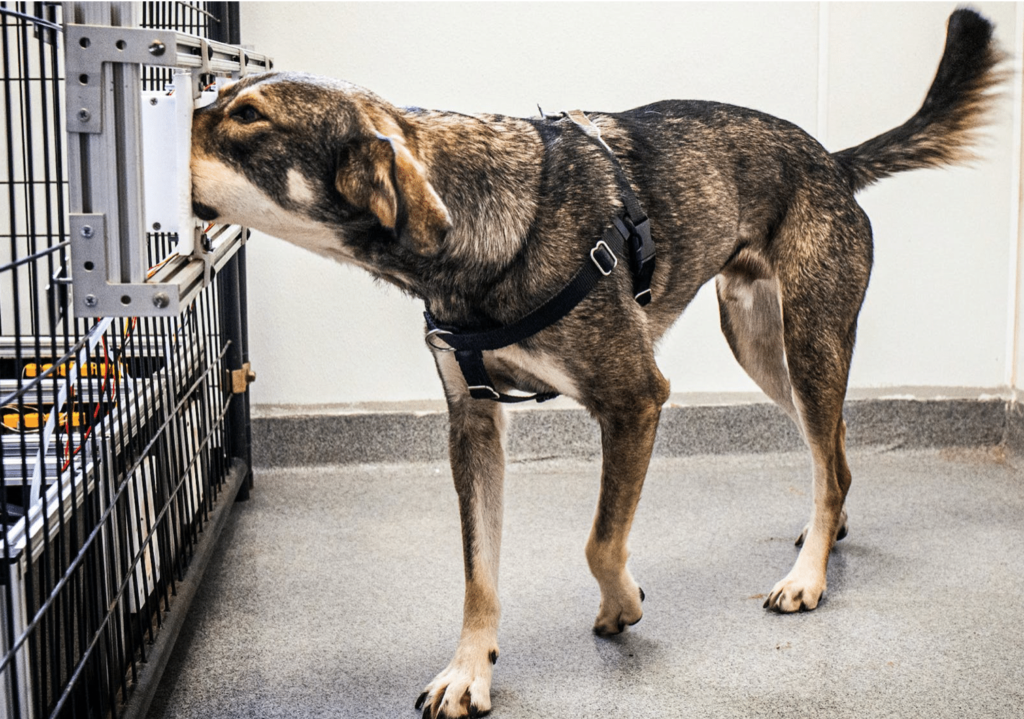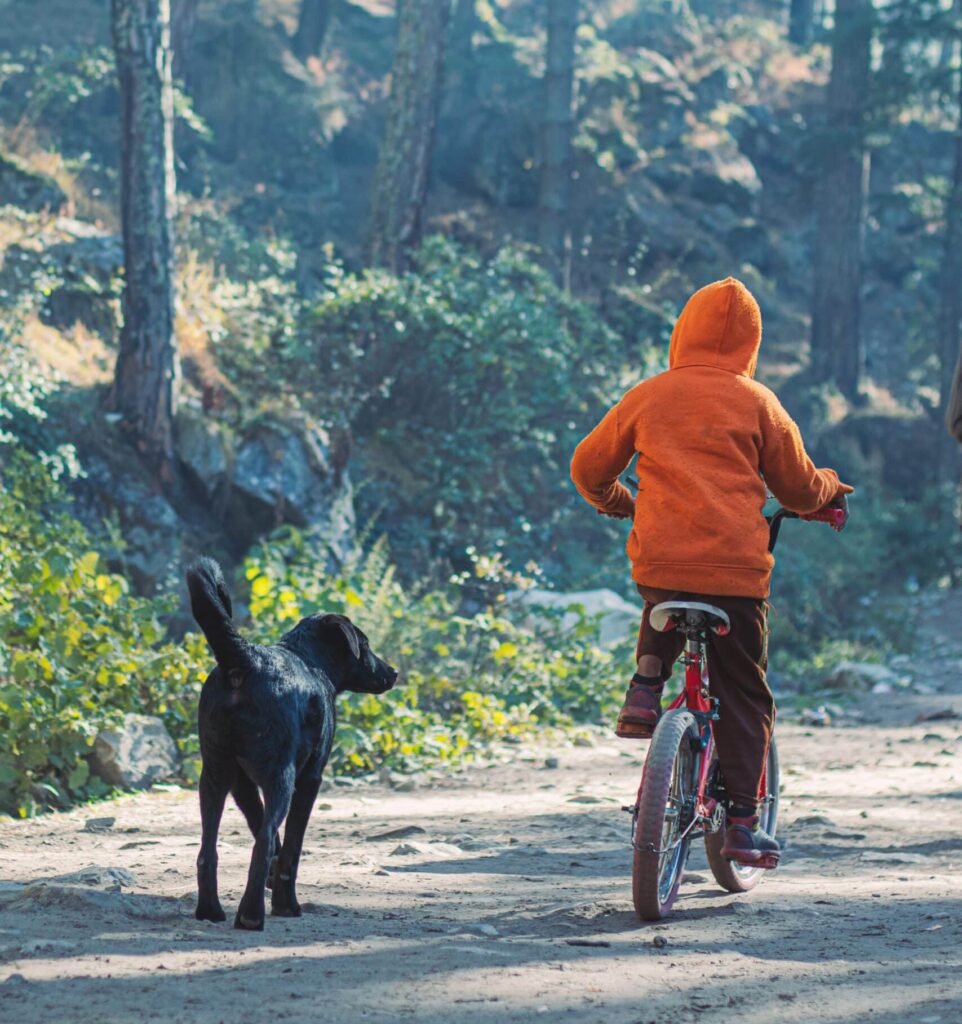When I was a kid growing up, I loved the 4th of July. Grilling outdoors, loud music, nights that turned to morning without sleep, sugar highs, and then, of course, the main event. The sky would inevitably ignite with vibrant colors and mesmerizing geometric shapes. The louder the booms, the brighter the light, and the more explosions per minute, the happier we were!
Then I grew up and fell in love with dogs.
Something happens when you live with a sound-sensitive dog. You become an instant curmudgeon. You’ll find yourself standing at the window, fists shaking and ready to strike, as if the kids outside paid any attention: “You damn kids, have a little respect,” I’d scream, forgetting that once upon a time I was one of those kids.
Dogs have incredible perceptual and physiological senses. Canids can detect tones in a higher frequency range than humans can. A dog’s eyes allow them to see movement and light much better than people. Dogs have a large number of light collecting rods in their eyes which help them to see better at night or in low light. The average dog’s sense of smell is 100,000 to 1 million times more sensitive than that of the average person. Now imagine the booms and blasts on July 4th — not to mention the days leading up to the 4th and the days afterwards — and then understand that fireworks can be a very painful assault on your dog’s hyper-sensitive nervous system.
The worst part is your dog can’t explain what’s happening to them.
I urge you to be vigilant and to be with your dog alone on the nights around the 4th — especially on the 4th. This may come as news to you: July 4th is one of the busiest days of the year for shelters because dogs often run away from the excessive noise and light, and they frequently get lost. It’s tragic for them because they’re in a state of terror.
When should you start preparing for July 4th?
Dr. Simone Sidel, DVM, who practices at Behavior Vets in Castle Pines, Colorado says she starts these conversations with clients as early as May. If you’re uncertain as to whether your dog experiences stress on and around the 4th, watch for changes in behavior that could range from very subtle to a major event. According to Dr. Sidel, signs of stress include climbing, trembling, burrowing under items, hiding, panting, pacing, and barking! Barking at fireworks is a stress response. Unfortunately, a lot of people find it funny: they think their dog is enjoying the sights and sounds like we do, and they treat it like a game. The problem is the dog is probably in distress and needs the proper attention.
Dr. Sidel says for dogs that are very fearful, the 4th can induce complete panic. She has advised these families to take a vacation to a pet-friendly Airbnb in a rural area to get away when fireworks are likely to be the most intense.
For more extreme reactions, it may be helpful to consult a veterinarian. They can help you plan for the distress and have something in place to ease your dog’s anxiety. Dr. Sidel says, “If we already have an anxiolytic medication that we know is helpful for fireworks, I make sure the dog’s guardian(s) have plenty in stock, and we discuss treatment as the 4th approaches. It might help to give the medication daily around 4pm, since fireworks frequently begin around sunset. This of course depends on where you live. If we don’t have a medication that we know will help, we start trials before the 4th, so by the time the holiday arrives, we know what will work to manage the dog’s stress. Remember that medications often take one to two hours to take effect and are less effective if given after panic has already set in for the animal. I’d much rather medicate and not have the fireworks happen vs. not medicating and having my pet panic, which is why I advise pre-medicating around 4pm the week of the 4th, when families tend to set off neighborhood fireworks at dusk.”
As a dog trainer I tell people it’s easier to manage the environment than to successfully desensitize and counter unfavorable conditions in an already sensitive animal. If your dog isn’t particularly sensitive, it’s still a good idea to dampen the sensory experiences around them because we can never know for sure which, if any, sensitivities will develop in the future. If you’d like to implement any management techniques, I advise doing these things regularly leading-up to a single event, so the pet doesn’t become a predictor of stress events.
What can you do to keep your dog safe over the 4th?
- Manage your environment by sensory dampening.
- Close blinds and consider having your dog furthest from windows where they are likely to experience flashing fireworks. Consider setting your pet up in an auxiliary bedroom or basement.
- Provide white noise, classical music, or rain sounds to dim some of the acute pops and bangs.
- Ask your veterinarian about Thunder Shirts and Dog Appeasing Pheromones (DAP), which can be a plugin you simply stick into an outlet, or a collar they wear around their neck to reduce anxiety.
- Before and after a busy fireworks season, consider increasing “decompression walks,” such as a long leash hike through open space.
- Spend more time in nature and engage in dog directed activities.
- Things like puzzles, lick mats, and sniffing games can provide passive enrichment if they are confined and provide outlets for dealing with stress.
Being proactive with a trainer and a veterinarian is important. If you have a dog who is sensitive to sounds, I advise not to wait for a situation or an event you know is coming. Get a health assessment and a training plan and work to improve the reactions throughout the year.
subscription
LOVE, DOG
